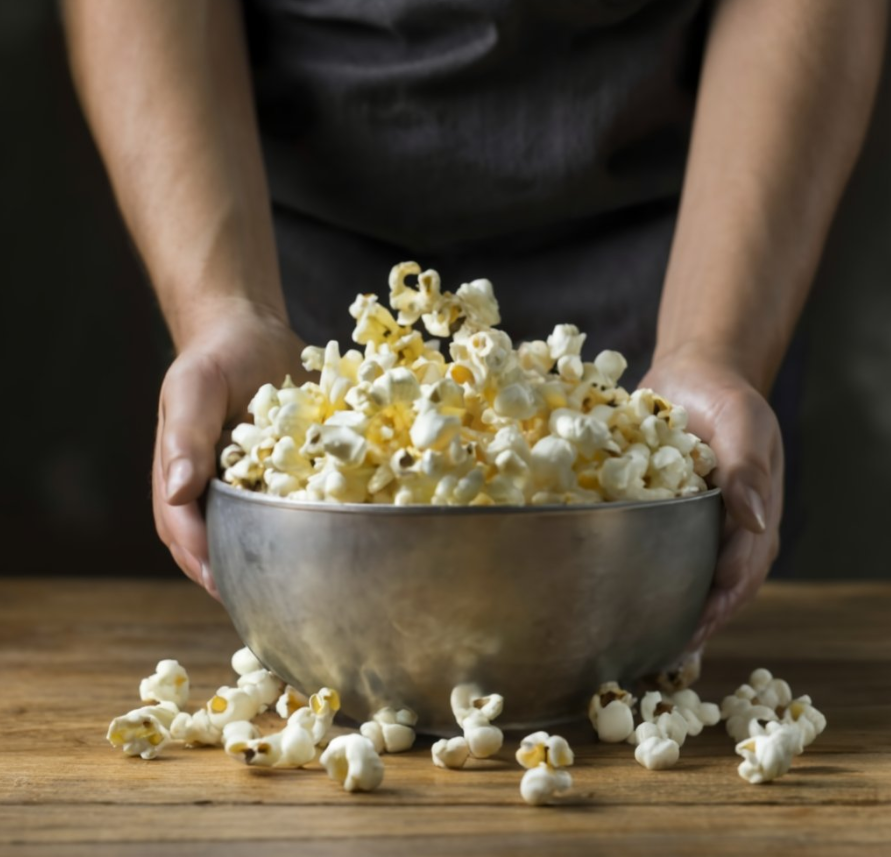Understanding Corn Varieties for Popcorn Perfection

Popcorn, a beloved snack enjoyed worldwide, is a culinary delight that involves the popping of corn kernels under heat. However, not all types of corn possess the ability to pop and transform into the fluffy treat we know and love. This article delves into the specific characteristics of popcorn and explores why certain varieties of corn are suitable for popping while others are not.
The Science Behind Popcorn Popping
The popping of popcorn is a fascinating phenomenon that relies on a combination of factors. Inside each popcorn kernel lies a small amount of moisture. When heated, this moisture turns into steam, creating pressure within the kernel. As the pressure builds, the kernel’s hard outer shell acts as a barrier, preventing the steam from escaping. Eventually, the pressure becomes so intense that the kernel explodes, releasing the starchy endosperm and creating the fluffy popcorn we enjoy.
The Role of Popcorn-Specific Corn
Not all types of corn possess the necessary characteristics to undergo this popping process. Popcorn, scientifically known as Zea mays everta, is a unique variety of maize specifically bred for its exceptional popping ability. Popcorn kernels have a hard outer shell that can withstand the pressure buildup during heating, allowing them to pop effectively. Additionally, popcorn kernels contain the ideal moisture content, which is crucial for generating the necessary steam pressure for popping.
Variations in Corn Types and Their Popping Suitability
In contrast to popcorn, other varieties of corn, such as sweet corn, dent corn, and flour corn, lack the essential traits for successful popping. Sweet corn, known for its sweet flavor, has a soft outer shell that is unable to withstand the pressure buildup required for popping. Dent corn, commonly used for animal feed and biofuel production, has a hard outer shell but lacks the appropriate moisture content for popping. Flour corn, primarily used for making cornmeal, has a starchy endosperm that does not expand sufficiently during heating, resulting in a lack of popping ability.
Alternative Popping Grains
While popcorn is the most widely used grain for popping, there are other grains that also possess the ability to pop. Sorghum and amaranth are two examples of alternative grains that can be popped. These grains have their own unique popping characteristics and can provide a different taste and texture compared to traditional popcorn.
Conclusion
In conclusion, not all types of corn can be used to make popcorn due to variations in their inherent characteristics. Popcorn, a specific variety of maize, is uniquely suited for popping due to its hard outer shell, ideal moisture content, and the presence of a starchy endosperm that expands during heating. Other varieties of corn, such as sweet corn, dent corn, and flour corn, lack these essential traits and are therefore not suitable for popping. Alternative grains like sorghum and amaranth offer unique popping experiences and can be explored as variations to traditional popcorn.
Sources:
- Barrie Hill Farms: https://barriehillfarms.com/what-we-grow/popping-corn/
- Cooking Stack Exchange: https://cooking.stackexchange.com/questions/97296/can-i-make-popcorn-with-any-corn
- The Daily Meal: https://www.thedailymeal.com/1280654/why-popcorn-made-from-one-type-corn/
FAQs
Can I use any type of corn to make popcorn?
No, not all types of corn can be used to make popcorn. Only popcorn, a specific type of corn known as Zea mays everta, has the characteristics necessary for successful popping.
What makes popcorn unique for popping?
Popcorn kernels have a hard outer shell that can withstand the pressure buildup during heating, allowing them to pop effectively. In addition, popcorn kernels contain the ideal moisture content, which is critical for creating the steam pressure necessary for popping.
Why can’t I use sweet corn or dent corn for popcorn?
Sweet corn has a soft outer shell that cannot withstand the pressure build-up required for popping. Dent corn has a hard outer shell, but does not have the proper moisture content for popping.
Are there other grains that can be popped?
Yes, there are other grains that have the ability to pop, such as sorghum and amaranth. These grains have their own unique popping characteristics and can provide a different taste and texture than traditional popcorn.
How do I ensure successful popping?
Use fresh popcorn kernels, as older kernels may have lost moisture and may not pop properly. Store popcorn kernels in an airtight container in a cool, dry place to keep them fresh. Heat the popcorn kernels in a saucepan or popcorn maker until all the kernels are popped.
What factors can affect popcorn quality?
Popcorn quality can be affected by the type of popcorn kernels used, the popping method, and the addition of seasonings or toppings. Using high-quality popcorn kernels, popping them properly, and adding seasonings or toppings can improve the flavor and texture of your popcorn.
